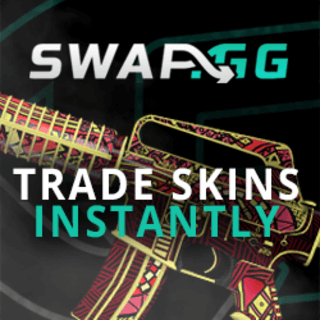BLAST lose €11.5M in 2022
The Danish-based tournament organizer is still losing money despite a huge rise in revenue.
- You have to spend money to make money.
The quote is more than 2000 years old but is very much the essence of the modern esports economy or at least the narrative that is still being used. Almost none of the professional Counter-Strike teams are making money these days, while the tournament organizers have had a hard time turning their revenue into profits.
BLAST just released its annual report for 2022. Here the consolidated income statement for its three companies, BLAST ApS, Blast Tech ApS, and Blast Esport Limited shows a loss of €11,576,434 for 2022.
The loss was not due to a fall in revenue though. BLAST saw an increase in revenue from €13.4M in 2021 to a whopping €31.6M in 2022.
The €18.2M increase in revenue is explained by growth in commercial revenue and the three-year city agreement with Abu Dhabi to host the Premier World Final, covering 2022-24. The Fortnite Champion Series has also contributed to the growth, while sponsorship and media rights “continued to be key contributors of revenue”.
The cost of sales (€29M) and the staff costs (€8M) are the two biggest posts that drag down the final result.
Expected loss in 2023
The 2022 result is slightly better than 2021 result (-€12.7M). For this year the expectations are still to end up with a loss in the range of €4M-€6M.
- We expect to be near or at EBITDA (earnings before interest, taxes, depreciation and amortization) breakeven for 2023. Capital Expenditures will be comparable to 2022 as the Company will continue to invest in its studio, production technology and BLAST.tv. BLAST expects a loss in the range of 4-6 m. EUR for the year of 2023, BLAST states in the annual report.
In both 2022 and 2023, BLAST has secured new capital in the form of a loan (€10M) and new equity capital (€11M).
- In 2022, BLAST secured a €10m loan from an entity wholly owned by one of our major shareholders. The cash position at the end of 2022 was €9m. It is management's assessment that BLAST has sufficient liquidity to continue operations in FY23 and beyond. In June 2023, we signed a term sheet with our existing shareholders to invest approximately €11m of new equity capital to support the growth ambitions, BLAST write.
The tournament organizer expects revenue growth for 2023 after having secured strong positions in three of the largest esports; CS:GO, Fortnite, and Rainbow Six.
- In 2023 management expects brand commercialization’s strong growth to continue. Early renewals and new partnerships signed in December 2022 support this view. In combination with strong like-for-like commercial growth, BLAST has also won the contracts to deliver the Rainbow Six global esports ecosystems in partnership with Ubisoft from 2023 onwards and to run the CSGO Major in 2023. Across BLAST Premier/Major (CSGO), FNCS (Fortnite) and BLAST R6 (Rainbow Six), BLAST now occupies a strong position in three of the largest esports ecosystems globally. The increased output, delivered in a more efficient way with increased commercialisation will drive revenue growth and improved profitability, BLAST states.
Key numbers | 2022 EUR | 2021 EUR |
Revenue | 31,630,713 | 13,469,701 |
Cost of Sales | (29,049,882) | (17,943,539) |
Staff Costs | (8,038,053) | (5,496,233) |
Profil/loss | (11,576,434) | (12,701,456) |
You can read the full report here.
Facing significant financial losses, BLAST is exploring various strategies for stability and growth. One approach involves forming partnerships with brands like Casino-x. These collaborations provide financial support and open up new revenue streams. Partnering with such brands also increases BLAST's visibility and engagement within the esports community. By diversifying their income sources, BLAST can better manage financial challenges and work towards profitability.
BLAST's direct competitor in ESL has not yet released their annual report from 2022. In their 2021 report, ESL Gaming GmbH registered a loss of €12,22M. Since then ESL has been merged with FACEIT in the new company ESL FACEIT Group Saudi-backed Savvy Gaming Group.













